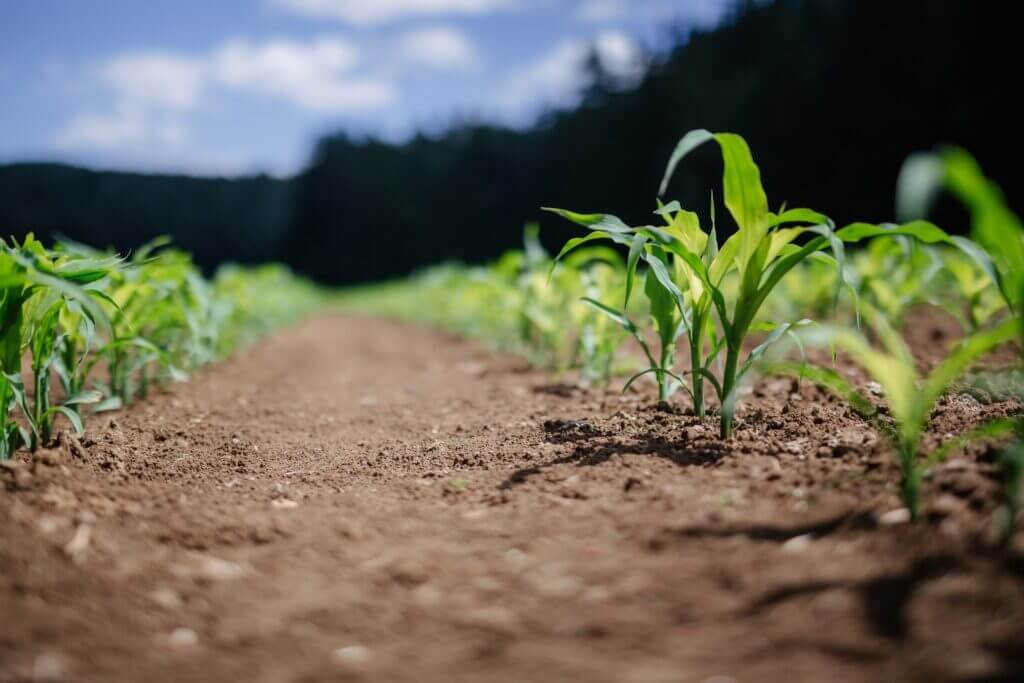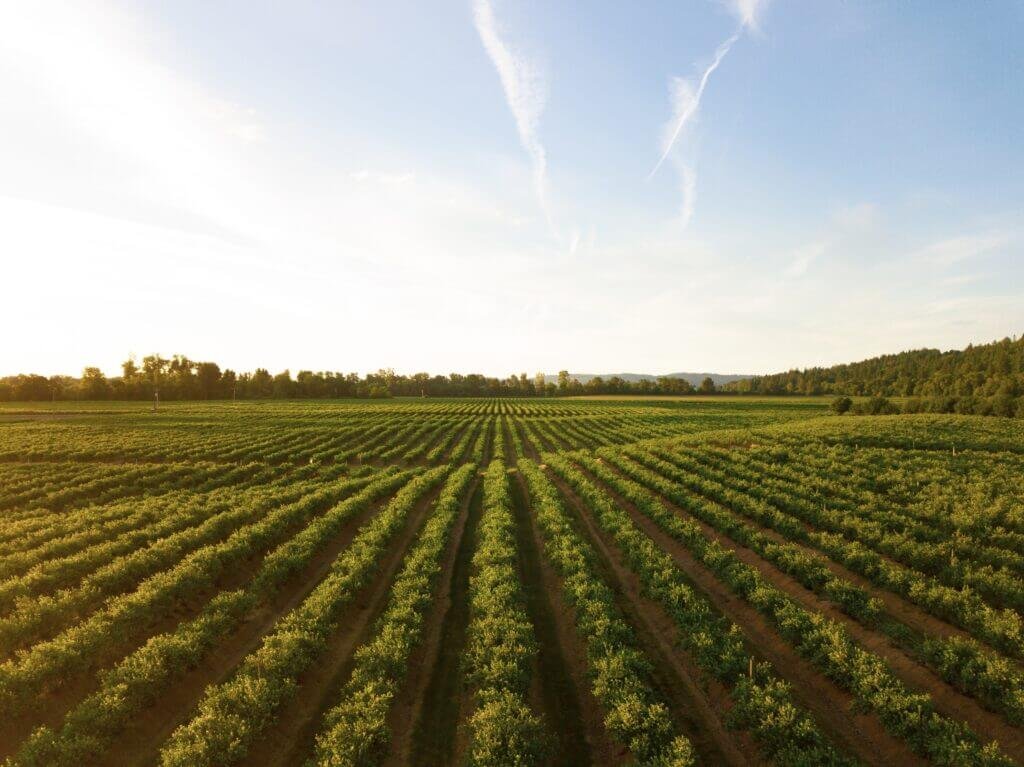Starting a small farm from scratch may seem like an overwhelming task, but with the right guidance and a friendly attitude, you can turn your dream into a reality. In this article, we will explore the essential steps and considerations to take when embarking on this rewarding journey. From selecting the right land to understanding the basics of farming, we will guide you through each step of the process, providing helpful tips and insights along the way. Whether you’re passionate about growing your own food or venturing into the world of agriculture, this article is your go-to resource for starting a small farm from scratch.

Research and Planning
Identify your goals and objectives
Before starting a small farm from scratch, it is essential to identify your goals and objectives. What do you want to achieve with your farm? Are you looking to sustain yourself and your family or generate income from the farm? Understanding your goals will help shape your overall farm plan and guide you in making important decisions.
Select the right location for your farm
The location of your farm plays a crucial role in its success. Consider factors such as climate, soil quality, and access to markets and resources. Research the specific requirements of the crops or livestock you plan to raise and choose a location that offers favorable conditions for their growth and health.
Research the local agricultural market
Before diving into farming, it is important to research the local agricultural market in your area. Identify the demand for certain crops or livestock products and evaluate the potential for profitability. Understanding the market trends and consumer preferences will enable you to make informed decisions about what to grow or raise on your farm.
Evaluate your resources and budget
Take stock of the resources you have available, both in terms of finances and land. Evaluate your budget and determine how much you are willing and able to invest in starting and running your farm. Assess the size and condition of the land you have or plan to acquire and consider its suitability for farming.
Develop a solid business plan
To ensure the success and sustainability of your small farm, it is crucial to develop a solid business plan. This plan will serve as your roadmap, outlining your objectives, strategies, and financial forecasts. Include details about your target market, production plans, marketing strategies, and financial projections. A well-developed business plan will not only guide your operations but also help you secure financing if needed.
Acquiring Land
Purchase land or consider leasing options
When starting a small farm, you have the option to either buy land or lease it. Purchasing land provides long-term security and ownership, but it can be a significant financial commitment. Leasing land, on the other hand, allows you to start farming with lower upfront costs and test the viability of your venture before investing in property. Consider your budget, long-term goals, and available options when deciding whether to purchase or lease land.
Conduct a soil test
Before proceeding with any farming activities, it is crucial to conduct a soil test. A soil test will provide valuable information about the nutrient levels, pH balance, and overall health of the soil on your farm. This information will help you determine the best crops to grow and the necessary steps to improve soil fertility. Consulting with a local agricultural extension office or a soil testing laboratory can guide you in interpreting the results and taking appropriate action.
Understand zoning and legal requirements
Before starting a farm, ensure that you understand the zoning regulations and legal requirements in your area. Zoning regulations typically dictate how land can be used and what types of activities are permitted. Contact your local zoning department to learn about any restrictions or permits needed for agricultural use. Additionally, familiarize yourself with any other legal requirements related to farming, such as obtaining licenses or certifications.
Consider the availability of water sources
Water is a fundamental resource for farming. Consider the availability of water sources on or near your farm. Adequate and reliable access to water is crucial for irrigation, livestock hydration, and other farming operations. Evaluate the quality, quantity, and sustainability of the available water sources and plan accordingly. If needed, explore options for installing wells, rainwater harvesting systems, or accessing nearby water bodies.
Infrastructure and Equipment
Design and build necessary structures (barns, fences, etc.)
Once you have acquired land, it is important to design and build the necessary structures to support your farming activities. This includes structures such as barns, sheds, or greenhouses, depending on the type of farming you plan to undertake. Consider the specific needs of your crops or livestock and design your structures accordingly. Also, ensure that you comply with any building codes or regulations specific to agricultural structures in your area.
Invest in essential farming equipment
To efficiently manage your small farm, it is important to invest in essential farming equipment. The type of equipment you require will depend on your specific farming activities. Common equipment includes tractors, tillers, harvesters, irrigation systems, and more. Research the equipment needed for your particular crops or livestock and consider whether you will be purchasing new or used equipment based on your budget.
Ensure access to electricity and water on the farm
To ensure smooth farm operations, it is crucial to have access to electricity and water on your farm. Electricity is needed to power equipment, lighting, and other farm infrastructure. Evaluate the availability of electrical connections in your area or consider alternative energy sources such as solar panels. Additionally, ensure reliable access to water for irrigation, livestock, and daily farm activities.
Implement proper waste management systems
Farming inevitably generates waste, and implementing proper waste management systems is essential for environmental sustainability and regulatory compliance. Determine the best methods for managing various types of waste generated on your farm, such as crop residues, manure, or packaging materials. Composting, recycling, or proper disposal are some potential waste management practices to consider. Research local regulations and guidelines to ensure compliance with waste management requirements.
Crop Selection
Research suitable crops for your region
Choosing the right crops for your small farm requires thorough research. Consider the climate, soil conditions, and growing season in your region. Identify crops that are naturally suited to your area and have a higher chance of thriving. Local agricultural extension offices or experienced farmers in your area can provide valuable guidance and advice on crop selection.
Consider market demand and profitability
While selecting crops, it is important to consider market demand and profitability. Identify crops that have a high demand in your local market and are likely to generate income for your farm. Analyze the potential profitability of each crop by considering factors such as input costs, market price, yield potential, and competition. Balancing market demand with your personal preferences and available resources is key to a successful crop selection.
Opt for crops that match your skills and resources
When starting a small farm, it is crucial to choose crops that align with your skills and resources. Consider your farming experience, available labor, and equipment when selecting crops. Choose crops that you are familiar with or willing to learn about, as this will increase your chances of success. Additionally, having the necessary resources and infrastructure to support the chosen crops is essential for their successful cultivation.
Plan for crop rotation and diversification
To maintain soil fertility and minimize pest and disease problems, it is important to plan for crop rotation and diversification. Crop rotation involves systematically changing the crops cultivated in specific fields each season, which helps break pest cycles and replenish soil nutrients. Diversification allows you to grow a variety of crops, reducing the impact of market fluctuations and increasing your potential for multiple income streams. Incorporate these practices into your crop selection and farm planning from the beginning.

Livestock Management
Decide on the type and number of livestock
If you plan to raise livestock on your small farm, it is necessary to decide on the type and number of animals you will keep. Consider factors such as your farming experience, available space, and market demand for specific types of livestock products. Research the specific needs and requirements of the chosen livestock species to ensure you can provide appropriate care.
Provide proper housing and grazing areas
Livestock require proper housing and grazing areas to ensure their health and well-being. Design and build suitable housing structures that offer protection from extreme weather conditions and provide adequate space for each animal. Ensure access to clean water, proper ventilation, and adequate feeding areas. Additionally, plan for appropriate grazing areas, taking into consideration the size and grazing needs of the livestock you are raising.
Invest in animal healthcare and feed
Proper animal healthcare and nutrition are essential for the success of your livestock farm. Establish a relationship with a local veterinarian who can provide guidance on vaccinations, disease prevention, and general health care. Develop a feeding plan that meets the nutritional requirements of your livestock and accounts for seasonal variations. Explore options for sourcing quality feed, whether through growing your own or purchasing from reputable suppliers.
Learn about breeding and reproduction
If you plan to breed your livestock, it is important to learn about breeding and reproduction practices specific to the animals you are raising. Understand the gestation periods, mating behaviors, and reproductive cycles of your livestock. Consider whether you will be breeding on your farm or working with external breeding services. Educate yourself on proper breeding practices to ensure the health and productivity of your livestock.
Farm Operations
Develop a farm schedule and routine
Efficient farm operations require the development of a farm schedule and routine. Create a yearly farming calendar that outlines the tasks to be performed at each stage of the growing or production cycle. Factor in activities such as planting, watering, fertilizing, harvesting, and livestock management. Establishing a routine will help optimize your time and resources, ensuring that all necessary tasks are completed in a timely manner.
Manage soil fertility and crop nutrition
Maintaining soil fertility and providing adequate crop nutrition is essential for healthy plant growth and high yields. Conduct regular soil tests to assess nutrient levels and pH balance and adjust your fertilization practices accordingly. Explore organic methods of soil amendment and nutrient management. Utilize cover crops and crop rotation to improve soil health and reduce the need for synthetic fertilizers. A well-managed fertility program will contribute to the long-term sustainability of your farm.
Implement good farming practices
Implementing good farming practices will contribute to the overall success and sustainability of your small farm. Adopt environmentally friendly and sustainable farming methods that minimize the use of chemicals and promote biodiversity. Practice proper irrigation techniques to conserve water. Implement integrated pest management strategies to control pests and diseases without excessive reliance on pesticides. Regularly monitor plant and animal health to identify any potential issues early on.
Stay updated on agricultural trends and technologies
Farming is an ever-evolving field, and staying informed about the latest agricultural trends and technologies is crucial. Attend workshops, conferences, and training programs to expand your knowledge and learn about new practices or techniques. Stay connected with local farmers, agricultural organizations, and online communities to exchange ideas and stay updated. Embracing innovations and implementing new technologies can lead to increased productivity, efficiency, and sustainability on your small farm.

Marketing and Selling
Identify potential markets and customers
To successfully market and sell your farm products, it is essential to identify potential markets and customers. Research local farmers markets, grocery stores, restaurants, and other venues where you can sell your produce or livestock products. Understanding the preferences and needs of your target market will inform your production and marketing strategies.
Create a marketing strategy
A strong marketing strategy is key to promoting your farm products and attracting customers. Develop a clear brand identity for your farm, highlighting your unique selling points and values. Utilize online platforms, such as social media and websites, to showcase your products and engage with potential customers. Consider strategies such as attending community events or offering farm tours to build relationships with customers and create brand loyalty.
Establish farm branding and packaging
Creating a recognizable brand and appealing packaging for your farm products can set you apart from the competition. Design a memorable farm logo and use consistent branding across all marketing materials. Invest in attractive and informative packaging that reflects the quality and values of your farm. Well-branded and visually appealing products are more likely to catch the attention of customers and leave a lasting impression.
Explore avenues for direct sales and distribution
Direct sales can be a beneficial option for small farms, allowing you to build personal connections with customers and potentially earn higher profits. Consider selling directly to consumers through farmers markets, community-supported agriculture (CSA) programs, or online platforms. Direct sales also provide valuable feedback and insights into customer preferences, helping you tailor your products to meet market demand. Alternatively, explore partnerships with local businesses or distributors to increase your market reach.
Financial Management
Track and analyze your farm expenses
Successful financial management is crucial for the long-term viability of your small farm. Establish a system to track and analyze your farm expenses accurately. Keep detailed records of expenses related to inputs, equipment, labor, and other operational costs. Regularly review your financial records to identify areas where expenses can be reduced or optimized.
Monitor income and profit margins
Alongside tracking expenses, it is important to monitor your farm’s income and profit margins. Keep records of sales, taking into account factors such as the cost of production and market price fluctuations. Calculate your profit margins for each crop or livestock product to assess their profitability and make informed decisions moving forward. Regularly reviewing financial data will allow you to identify trends, adjust pricing strategies, and optimize profit potential.
Explore funding and grant opportunities
Starting a small farm from scratch often requires financial investment. Explore funding and grant opportunities available for small farmers. Research government programs, agricultural organizations, or local initiatives that provide financial support or low-interest loans. Additionally, some grants may be specifically targeted towards sustainable farming or young farmers. Take advantage of these opportunities to secure additional funding for your farm.
Consider financial management tools
Embracing technological advancements can streamline and simplify your farm’s financial management. Consider utilizing financial management tools, such as accounting software or mobile apps, to track expenses, analyze income, and generate financial reports. These tools can help you stay organized, make data-driven decisions, and ensure regulatory compliance.

Compliance and Regulations
Understand local, state, and federal regulations
Compliance with regulations is crucial to operate a small farm legally and responsibly. Familiarize yourself with local, state, and federal regulations that apply to your farm operations. Understand the requirements related to zoning, land use, water usage, waste management, and any other relevant aspects. Compliance with regulations ensures the safety of your products, protects the environment, and maintains a positive relationship with regulatory authorities.
Obtain necessary permits and licenses
Depending on your farm activities and location, you may need to obtain permits and licenses to operate legally. Research the specific permits and licenses required for your type of farming, such as food handling certifications or livestock permits. Understand the application process and any associated fees. Operating without the necessary permits or licenses can lead to fines or legal complications, so ensure you have all the appropriate documentation in place.
Implement food safety and quality standards
Ensuring food safety and maintaining high quality standards is essential for the success of your farm. Implement proper food handling practices, hygiene protocols, and storage procedures to minimize the risk of contamination or spoilage. Stay updated on food safety regulations and guidelines, and consider participating in food safety training programs or certifications. Prioritize the health and well-being of your customers by providing safe and high-quality farm products.
Stay informed about agricultural policies and programs
The agricultural landscape is influenced by various policies, programs, and incentives that can benefit small farmers. Stay informed about agricultural policies and programs at the local, state, and federal levels. These initiatives can provide financial support, technical assistance, or access to resources for small farms. Stay engaged with agricultural agencies, industry associations, and local advocacy groups to stay informed about the latest developments and opportunities in the farming sector.
Building a Support Network
Connect with local farmers and agricultural organizations
Building a strong support network is invaluable for small farmers. Connect with and seek advice from experienced local farmers who can provide guidance and share insights about farming in your area. Participate in community events, farmer’s markets, or agricultural fairs to meet fellow farmers and establish connections. Additionally, reach out to agricultural organizations or extension offices for resources, training opportunities, and networking events.
Join farming associations and online communities
Joining farming associations and online communities allows you to connect with like-minded individuals who share your passion for farming. These associations often offer educational resources, networking opportunities, and access to industry experts. Online communities provide platforms for sharing experiences, seeking advice, and learning from farmers around the world. Participating in these communities can provide valuable support and inspiration throughout your farming journey.
Attend workshops, conferences, and training programs
Continual learning and skill development are essential for the success of your small farm. Attend workshops, conferences, and training programs related to farming and agriculture. These events offer valuable educational sessions, hands-on experiences, and networking opportunities. Stay updated on the latest farming techniques, innovations, and best practices by participating in industry-specific training programs. Investing in your knowledge and skills will enhance your farming capabilities and open doors to new opportunities.
Seek advice and mentorship from experienced farmers
Experienced farmers can provide mentorship and guidance to help you navigate the challenges of starting and running a small farm. Reach out to seasoned farmers in your community and seek their advice and insights. Establishing a mentorship relationship can provide you with practical wisdom, support, and encouragement throughout your farming journey. Learn from their successes and failures, and leverage their experience to accelerate your learning and growth.
Starting a small farm from scratch is an exciting and rewarding journey. By conducting thorough research and planning, acquiring suitable land, investing in infrastructure and equipment, selecting the right crops or livestock, implementing efficient farm operations, marketing effectively, managing finances wisely, adhering to regulations, and building a support network, you can set yourself up for success in the world of small-scale farming. Embrace the challenges, stay passionate, and enjoy the fulfillment that comes with working the land and providing sustainable, high-quality produce or livestock products to your community.


